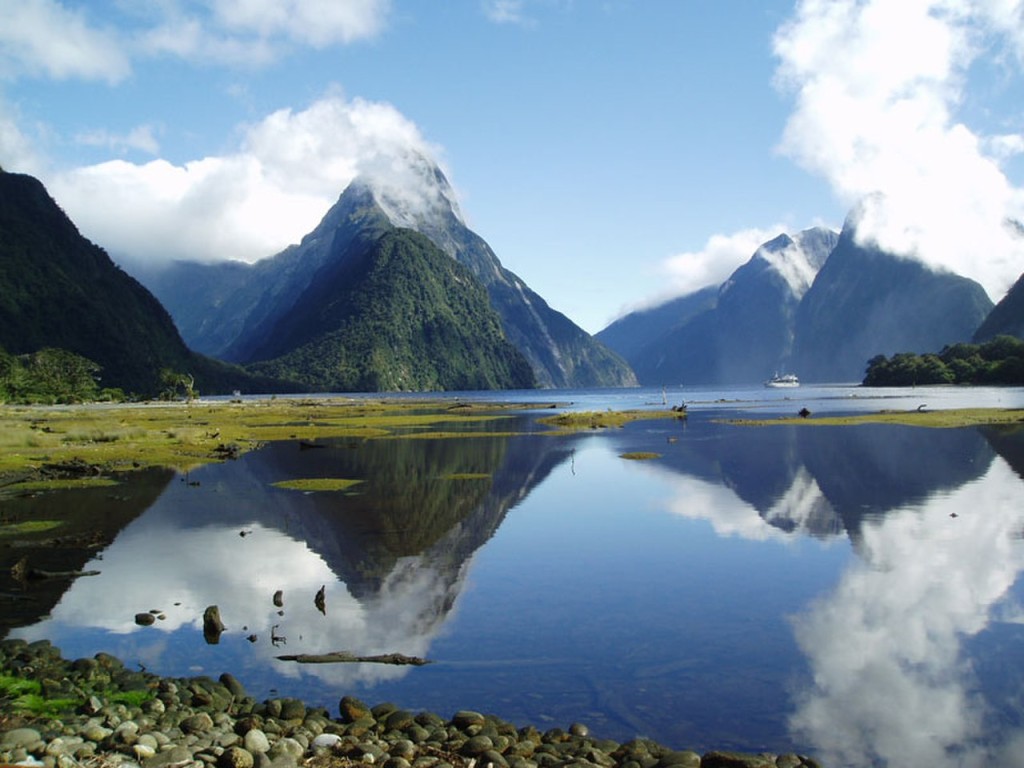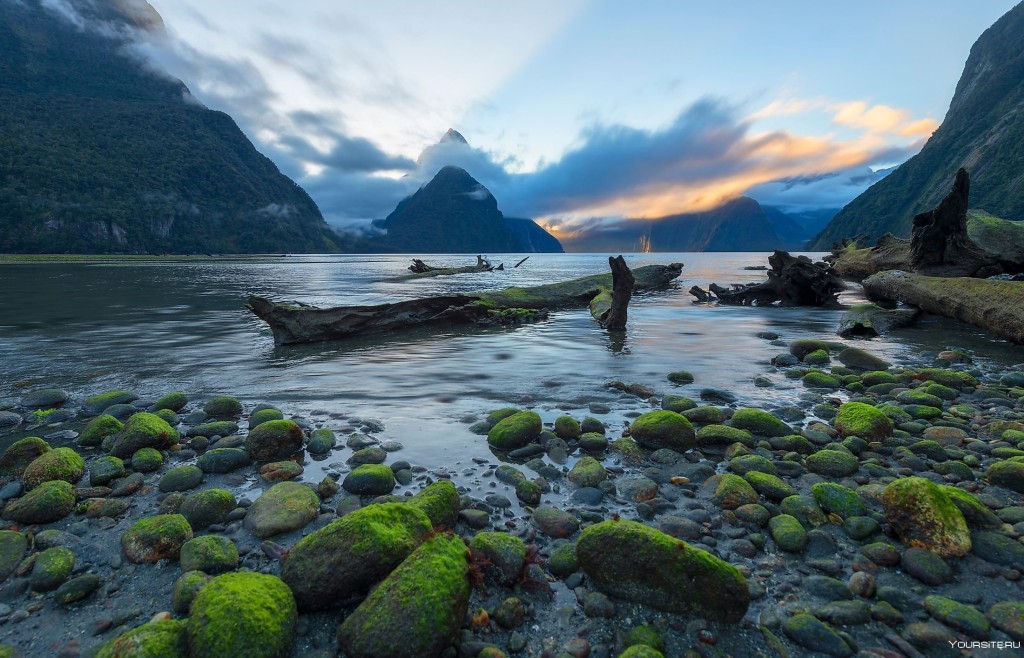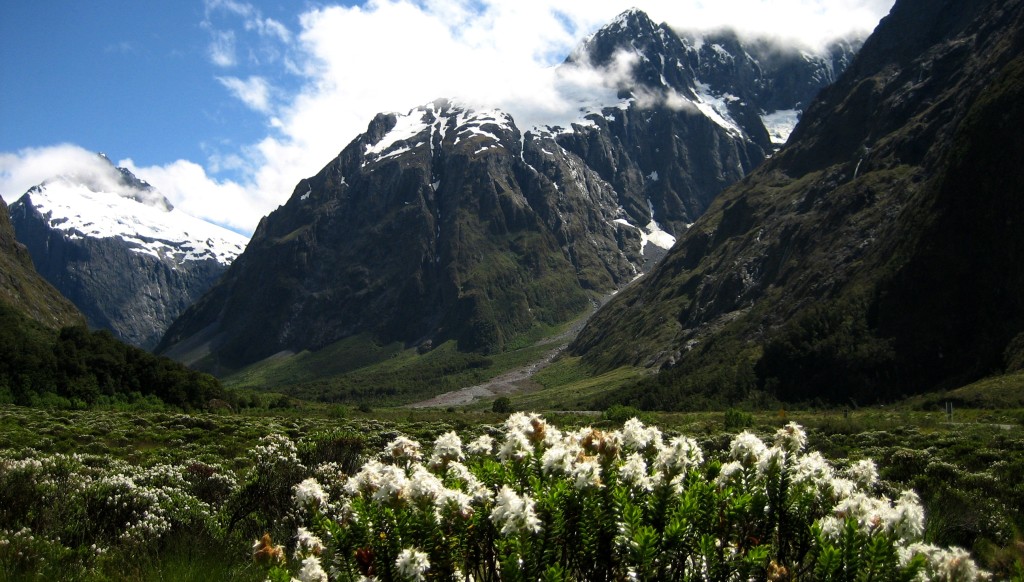August 25, 2023
Nature reserves of the world: Fiordland
Norwegian fjords are famous all over the world... But today we will not talk about them)

Fiordland National Park is not located in Norway at all, but in a remote mountainous part of New Zealand. It occupies the southwestern part of the South Island. From the west it is washed by the Tasman Sea. The whole coast is indented with extraordinary beauty by fjords. What is most interesting and unusual is that there is a 40–meter layer of fresh water on the surface of the sea fjords. This is due to the fact that this part of the park is one of the rainiest places in the world. It rains here 200 days a year.

In the waters of the fjords you can meet fur seals, thick-billed penguins, bottle-nosed dolphins. It is also home to the world's largest colony of black corals.
On the eastern border of the park there are many lakes, the deepest in New Zealand.

The highest mountain peak in the park has a height of 2746 meters. The slopes of the mountains are covered with selva (tropical forest), which is home to many species of plants and animals. Silvery notophagus (southern beech) grows here. Some of them are up to 800 years old.
The park is home to the largest number of birds in New Zealand. Among them are the last representatives of the world's only flightless parrots kakapo (owl parrots) and takahe, or wingless sultanas.
Of the 3,000 insect species living in the Fjordland, 10% are endemic.
The total area of the park is 12,500 sq.km. This area received the status of a national park in 1952, and in 1990 was included in the UNESCO World Heritage List.

Fiordland National Park is not located in Norway at all, but in a remote mountainous part of New Zealand. It occupies the southwestern part of the South Island. From the west it is washed by the Tasman Sea. The whole coast is indented with extraordinary beauty by fjords. What is most interesting and unusual is that there is a 40–meter layer of fresh water on the surface of the sea fjords. This is due to the fact that this part of the park is one of the rainiest places in the world. It rains here 200 days a year.

In the waters of the fjords you can meet fur seals, thick-billed penguins, bottle-nosed dolphins. It is also home to the world's largest colony of black corals.
On the eastern border of the park there are many lakes, the deepest in New Zealand.

The highest mountain peak in the park has a height of 2746 meters. The slopes of the mountains are covered with selva (tropical forest), which is home to many species of plants and animals. Silvery notophagus (southern beech) grows here. Some of them are up to 800 years old.
The park is home to the largest number of birds in New Zealand. Among them are the last representatives of the world's only flightless parrots kakapo (owl parrots) and takahe, or wingless sultanas.
Of the 3,000 insect species living in the Fjordland, 10% are endemic.
The total area of the park is 12,500 sq.km. This area received the status of a national park in 1952, and in 1990 was included in the UNESCO World Heritage List.
Read more
July 31, 2024
April 12, 2024
April 5, 2024